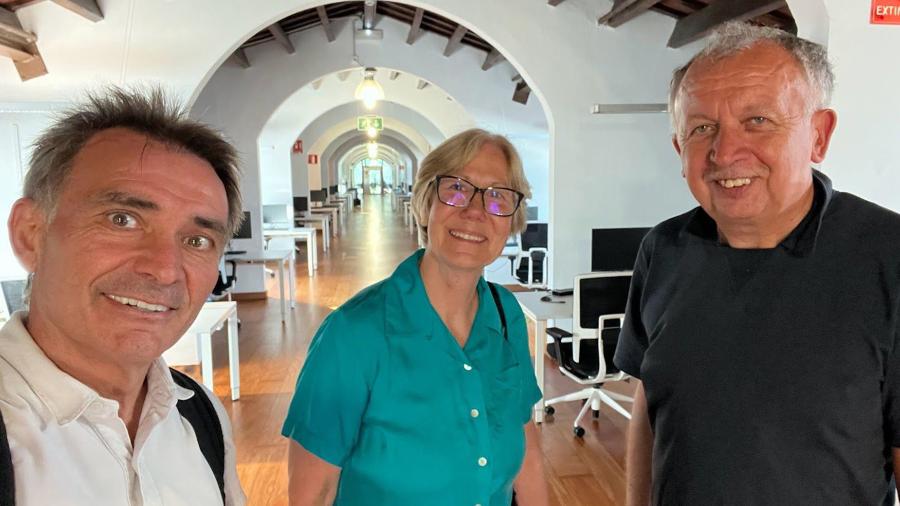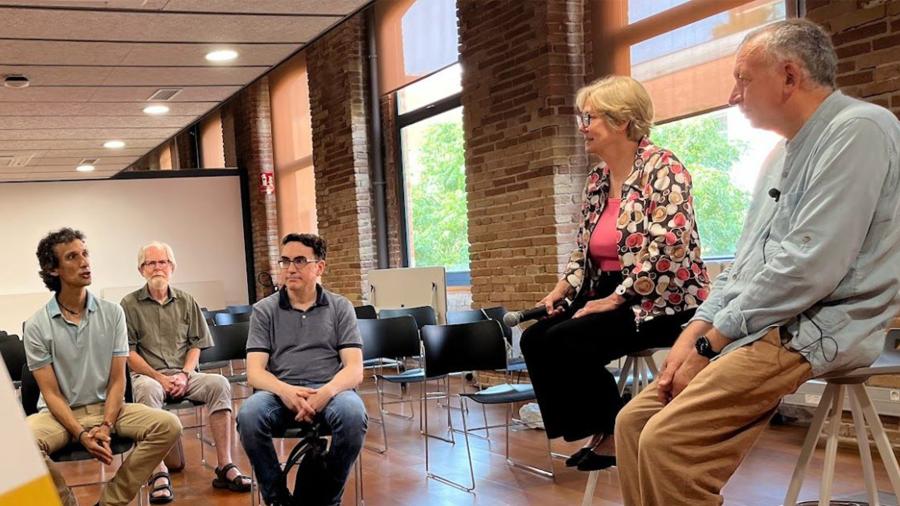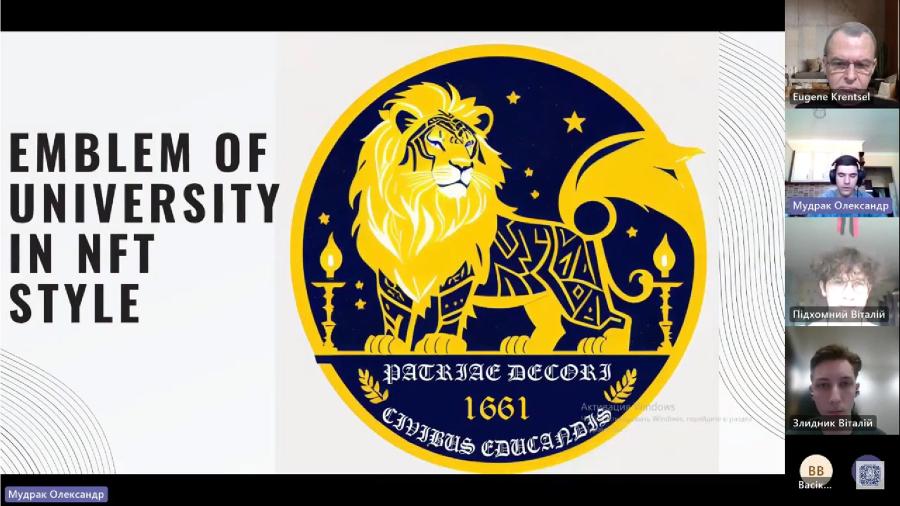In the spring of 2022, amidst an invasion by Russian forces, two friends sought to bring 100 university students in Ukraine a sense of how to rebuild their nation’s economy.
UW-Stout Associate Professor Mary Spaeth presented virtually about entrepreneurship to Professor Ihor Katernyak’s Innovation Spring of Ukraine class at Ivan Franko National University of Lviv. Their students have presented business pitches to each other virtually, and discussed and shared feedback.
Now, for the last 18 months, as the war in Ukraine continues, their friendship has grown stronger. And what Katernyak thought would be a stand-alone course based on hopes that the attacks on his country would be short-lived, has turned into a Collaborative Online International Learning program, or COIL, a concept originally pioneered by the SUNY COIL Center in the early 2000s.

Spaeth and Katernyak met in the 1990s when he visited the U.S. They share an enthusiasm for economic development and entrepreneurship.
“We have always engaged in projects together, but it sadly has taken a crisis to move us into a level of productivity neither of us thought possible,” Spaeth said.
“We are two old friends who reunited during war to fight for entrepreneurship and freedom. Despite the destruction and death caused by rockets falling on one of them and their neighbors, the other friend asked, ‘How can I help?’ This exemplifies true human connection, where we can share a part of our lives with others,” Katernyak said.
Strengthening partnerships through COIL
UW-Stout’s COIL program is currently being developed by Sylvia Tiala, director of the Nakatani Teaching and Learning Center; and Scott Pierson, director of the Office of International Education. They are working with a committee to develop a common framework for the program.
“COIL formalizes the sharing of knowledge across borders and creates greater intentionality by building exchange ‘moments’ into courses as lectures, student projects, modules and more. Quite a bit of planning goes into formalizing the program, but we remain open to serendipity and opportunity, especially within the entrepreneurship courses which rely on pivoting for innovation through problem-solving and customer discovery,” Spaeth said.
The Innovation Spring course was designed to inspire students and researchers in engineering, life and computer sciences, and economics to generate ideas for startup businesses and learn to manage businesses.
Katernyak also has spoken virtually at UW-Stout’s Ideation Jam, where students generate business ideas, and receive pitch training and feedback from mentors. Katernyak emphasized to students that, “Entrepreneurship is freedom.”
Thus far, Spaeth and Katernyak have influenced about 25 students at UW-Stout and about 200 students in Ukraine. UW-Stout has majors in business administration; arts administration and entrepreneurship; and management; and minors in business administration and entrepreneurship and innovation.
“When Stout instructors participate in COIL, the entire class benefits,” Pierson said. “COIL exchanges increase cultural awareness of students and instructors. Additionally, they better prepare students for study abroad experiences by giving them a sampling of international learning without additional fees.”
“Students learn via deeper dives into topics to gain new perspectives, and partnerships among instructors can lead to research and writing collaborations,” Spaeth added.
Creating student relationships to innovate solutions
In June, Spaeth and Katernyak were invited by Professor Josep Prieto Blásquez to Universitat Oberta de Catalunya, in Barcelona, Spain, to record a conversation about international educational collaboration in teaching entrepreneurship and inspiring innovation across disciplines.

They were joined by Professor Viktoria Loboda, of the social pedagogy and social work department at Ivan Franko; and Thomas Karlsson, CEO of Sormland Investment Fund of Sweden to discuss the topic Innovation Spring as a Time for Startup Blooming.
The conversation will be shared with other faculty and select students as the foundation for entrepreneurial course collaboration.
“Our mission is to build a network of committed individuals in academia and investment and to create relationships among entrepreneurship students to solve problems and innovate solutions for the rebuilding of Ukraine,” Spaeth said. “The class visits, pitch presentations and sharing of ideas between Ukraine, the U.S. and Sweden is expanding to generate more innovation to catalyze peace and prosperity.”
During the Innovation Spring 2023 forum, student teams presented their projects in English to an international jury. Their startup ideas would impact Ivan Franko University, communities of Lviv and Ukraine, or specific consumers, while others work to solve global problems. Their ideas include:
- Apps that connect citizens to city departments or that empower people through food accessibility and sustainability
- Databases that help citizens find charitable organizations and community resources
- Mobile temporary housing for disadvantaged peoples
- Custom-made clothing made from upcycled clothing and fabrics
- The preservation of the university through digital artifacts
- Game development.

Spaeth's appointment to chair of the business department this fall has also provided a COIL opportunity for Katernyak to act as a consultant and virtual visiting professor for UW-Stout’s Entrepreneurship Capstone, where teams innovate and create startups.
Katernyak will share his recently published book “Innovation Spring in Tech Startups” with students in the course. Spaeth will guide students through thesis writing, while Katernyak brings his experience, knowledge and perspectives on innovation, entrepreneurship and the imagining of startups.
“This will be deep-COIL,” Spaeth said. “The expanded collaboration will allow for many of Katernyak's students in Ukraine to interact with our students as we continue to build our partnership.”
UW-Stout partners with more than 20 international universities that either have or are developing similar COIL opportunities. Once the framework has been decided, OIE and Learning and Information Technology will help facilitate training and matchmaking with partnering institutions.
“The potential reach and impact for COIL at Stout is tremendous,” Pierson said. “Ideally, all courses should include a global perspective, and any instructor at Stout could engage.
“Many instructors, like Mary, are already engaging in international learning and virtual exchange, and we are hopeful that more will utilize the commonly accepted COIL framework so that we can further increase the internationalization of the Stout curriculum,” he added.





